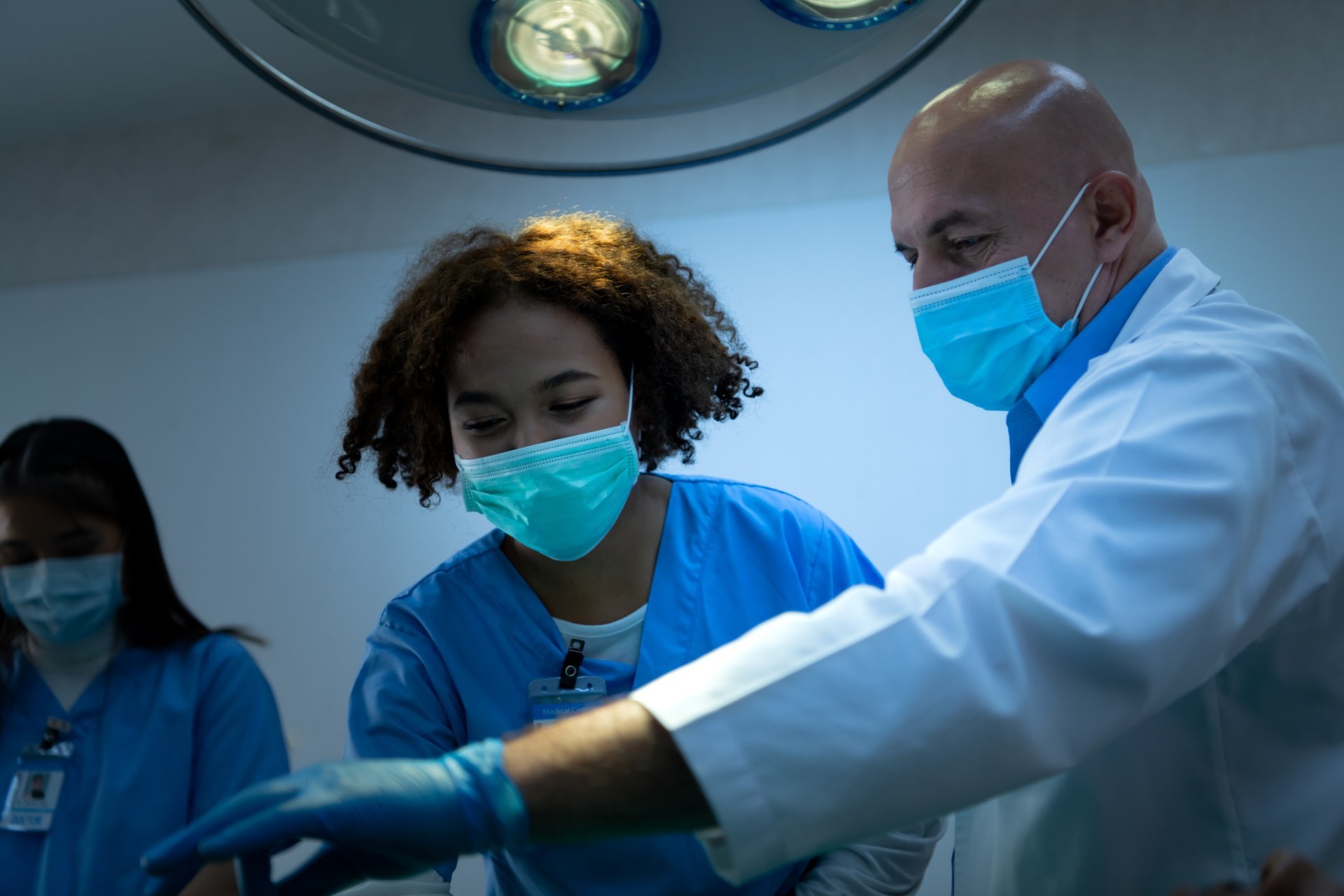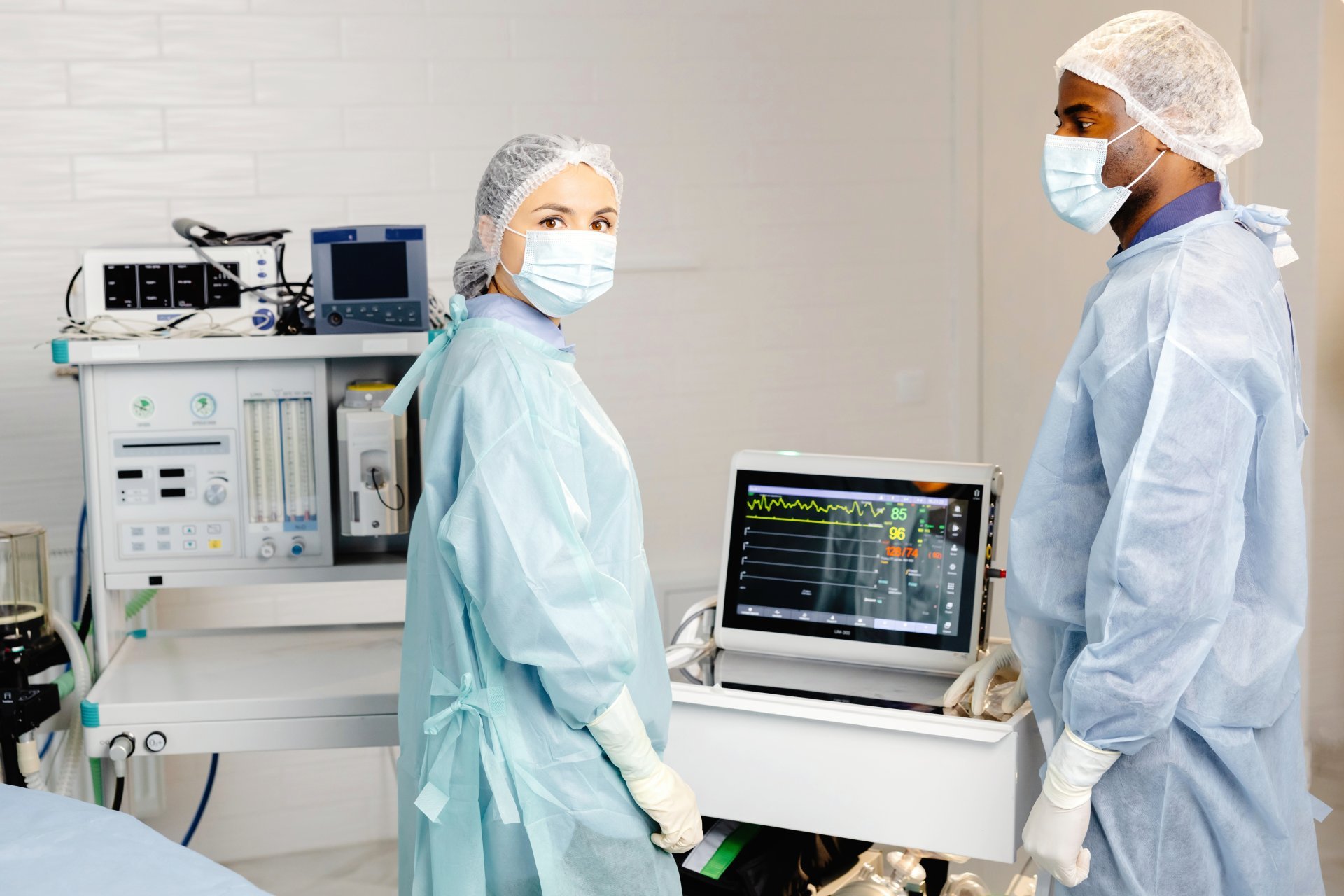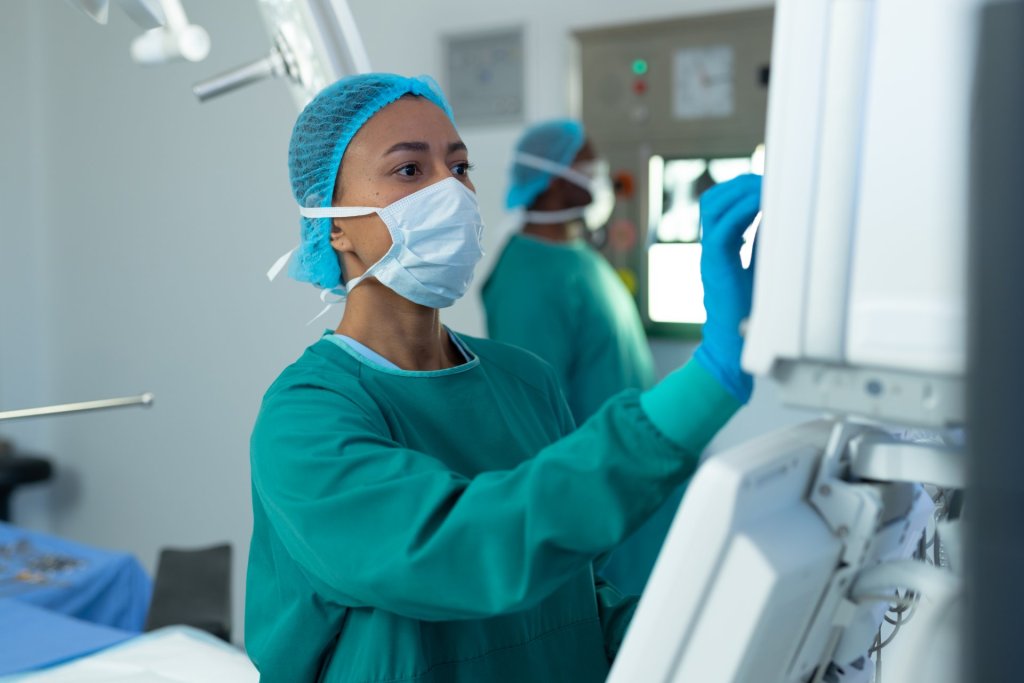Cath lab techs, or cardiac catheterization technologists, work in cardiac catheterization labs assisting cardiologists and helping patients with heart issues. Cardiac catheterization is a procedure in which a catheter is threaded through an artery or vein into a patient’s heart. Needless to say, it’s a very invasive procedure that requires a steady pair of hands. That’s where cath lab techs come in.
What does a cath lab tech do?
Not to be confused with interventional radiology techs or electrophysiology (EP) techs, cath lab techs are cardiovascular specialists with a wide range of responsibilities. In addition to assisting with cardiac catheterization, cath lab techs:
- Recognize cardiac conditions like arrhythmias
- Assist with tests like EKGs and stress tests
- Take patients’ blood pressure
- Review lab results
- Operate cath lab equipment
- Monitor patients during procedures
Cath lab techs may also be responsible for maintaining patient files, scheduling appointments, and educating patients about cardiovascular conditions and procedures. Invasive catheterization is most commonly associated with the role, but the responsibilities of a cath lab tech are wide-ranging and can vary between facilities.
How to become a cath lab tech
Cath lab techs aren’t required to have a bachelor’s degree. However, they do need to complete some post-secondary education beyond a high school diploma to qualify for their role. What level of education comes next can vary.
Education requirements for cath lab techs
Beyond a high school diploma, here are the steps one must take to become a cath lab tech.
- Find an associate or certificate program in invasive cardiovascular technology (ICT or ICVT).
- ICT programs involve both classroom and on-the-job training. Classes can include anatomy and physiology, cardiology, and education specific to cath lab equipment.
- Complete your ICT program, which can take up to two years. Some certificate programs can be completed in as little as 12 months.
After completing the required education, you are officially able to begin your career as a cath lab tech. However, while not required across the board, you may want to complete a certification to make yourself more attractive to potential employers.

Cath lab tech certifications
Certification requirements are becoming more commonplace in the industry and possessing one or more can help you push your career and earning potential forward.
A few certifications that are helpful for cath lab techs are:
- RCIS: Short for Registered Cardiovascular Invasive Specialist, the RCIS certification shows knowledge of cardiac catheterization best practices and process. Applicants must complete a three-hour, 170-question online exam to become certified.
- VI: Vascular Interventional Radiography, or VI certification, is administered by the American Association of Radiologic Technologists (AART). This certification comes with specific education and experience requirements in addition to an exam.
- Cardiac Interventional Radiology: Also offered by the AART, this certification requires specific education and experience as well as a passing exam grade. The exam contains 145 questions on cardiac interventional radiology.
Oftentimes, employers require at least one of the above certifications before an applicant can be considered. That’s why it’s helpful to begin completing certifications before or during your first on-the-job experience as a cath lab tech.
Cath lab tech license requirements
There are currently 37 US states that require cath lab techs to obtain a state-specific license. There is no compact license for cath lab techs, meaning if one wants to practice in a new state, they must research and adhere to that state’s licensure requirements.
States that require a license typically charge an initial fee as well as a renewal fee every one to two years. Fees can range from $45 to nearly $200. The state’s department of health usually administers the licensure program for cath lab techs.
If you’re looking to begin a career as a cath lab tech, move to a new state, or both, you should research license requirements to ensure you are eligible for employment. If not, you may have to wait until you’re properly licensed to begin working as a cath lab tech.

Salary and job market for cath lab techs
Good news for aspiring cath lab techs–the job market is expected to grow faster than average. According to the U.S. Bureau of Labor Statistics (BLS), the job outlook for Diagnostic Medical Sonographers and Cardiovascular Technologists and Technicians is expected to grow 10% from 2022–2032. As of 2022, there were an estimated 142,800 jobs in those fields nationwide.
According to the BLS, the median annual wage for cardiovascular technologists and technicians was $66,170 in May 2023. The BLS predicts nearly 10,000 openings for diagnostic medical sonographers and cardiovascular technologists and technicians each year until 2032, meaning those choosing to pursue a career as a cath lab tech can expect a healthy job market when they’re ready to enter the workforce.
Start your allied healthcare journey with Prolink
If you’re a certified cath lab tech looking for an opportunity to begin or advance your career, look no further than the expert allied health recruiters at Prolink. Our relationships with some of the top facilities in the country can help you secure the type of position you’re looking for–including a competitive pay and benefits package.
Click below to browse our available allied health positions.









